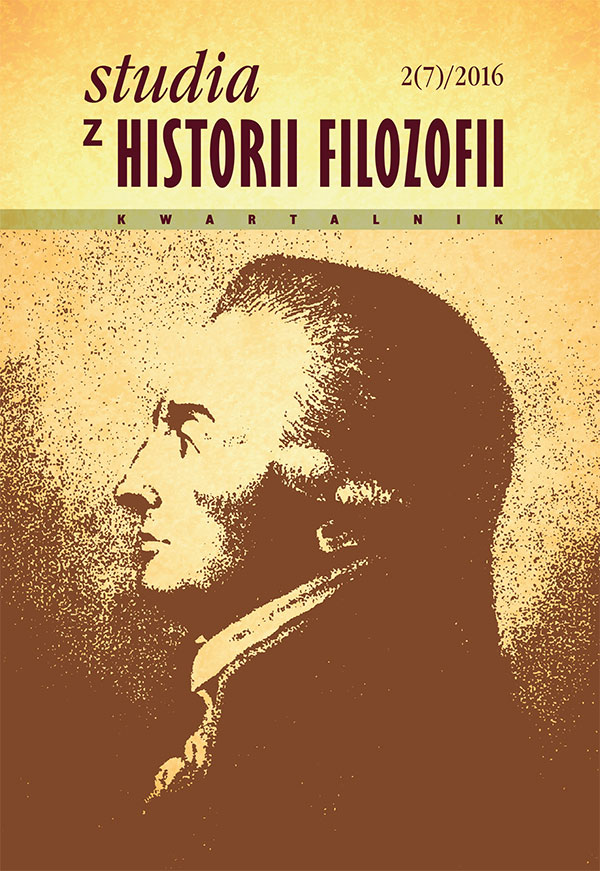Genetyka człowieczeństwa. Krytyka argumentu z ciągłości genetycznej
DOI:
https://doi.org/10.12775/szhf.2016.032Słowa kluczowe
etyka, embrion, człowieczeństwo, kontinuum genetyczne, animacja bezpośredniaAbstrakt
Określenie statusu etycznego embrionu ludzkiego wymaga znalezienia sztywnej miary wartości człowieka – pewnego układu odniesienia, który da nam jednoznaczność w dokonywaniu trudnych wyborów moralnych i ustalaniu prawa. Zwolennicy kryteriów człowieczeństwa od poczęcia (animacji bezpośredniej) w pierwszej kolejności muszą uzasadnić podstawy, na których opiera się stałość statusu moralnego człowieka, mimo widocznych zmian ilościowych i jakościowych ciała w okresie embrionalnym. W tym celu należy wykazać, że embrion i dorosły człowiek, który się z niego rozwinie, to substancjalnie ta sama istota. Celem niniejszego artykułu jest przegląd wymiany myśli na temat jednego z istotnych i najbardziej zgrabnych argumentów za człowieczeństwem od zapłodnienia – argumentu z kontinuum genetycznego. Linia dyskusji jego zwolenników opiera się na fakcie, że w momencie zapłodnienia ludzkiej komórki jajowej ludzkim plemnikiem powstaje wyjątkowy zestaw genów, który nie zmienia się w czasie dalszego wzrostu i rozwoju ciała. Krytyka tego stanowiska polega na wskazaniu związanym z tym trzech problemów: tożsamości genetycznej bliźniąt jednojajowych, genetycznego determinizmu i nieostrości wyznaczonej w ten sposób granicy.
Bibliografia
Bołoz W., Bioetyka i prawa człowieka, Wydawnictwo Uniwersytetu Kardynała Wyszyńskiego, Warszawa 2007, s. 221–241.
Engelhardt H. T. Jr., The Ontology of Abortion, „Ethics” 1974, vol. 84, no. 3, s. 217–234.
FitzPatrick W. J., Totipotency and the Moral Status of Embryos: New Problems for an old Argument, „Journal of Social Philosophy” 2004, vol. 35, no. 1, s. 108–122.
Ford N. M., Kiedy powstałem? Problem początku jednostki ludzkiej w historii w filozofii i w nauce, przeł. W. J. Popowski, PWN, Warszawa 1995, s. 140.
Howsepian A. A., Toward a General Theory of Person, „Christian Bioethics” 2000, vol. 6, no.1, s. 15–35.
Noonan J., An almost absolute value in history, cyt. za: M. A. Warren, The moral status of the gene, [w:] A Companion to Genetics, eds. J. Burley, J. Harris, Blackwell Publishing 2004.
Rovane C., Genetics and Personal Identity, [w:] A Companion to Genetics, eds. J. Burley, J. Harris, Blackwell Publishing 2004, s. 245–252.
A. Sagan, P. Singer, The Moral Status of Stem Cells, „Metaphilosophy” 2007, vol. 38, no. 2–3, s. 264–284.
Sak J., Kiciński P., Kołodziejczyk B., Marczewski K., Bioetyczne aspekty ochrony życia człowieka w okresie prenatalnym, [w:] Etyka wobec sytuacji granicznych, red. D. Probucka, Oficyna Wydawnicza „Impuls”, Kraków 2007, s. 182.
Singer P., O życiu i śmierci. Upadek etyki tradycyjnej, przeł. A. Alichniewicz i A. Szczesna, Państwowy Instytut Wydawniczy, Warszawa 1997, s. 88–114.
Steinbock B., Preimplantation Genetic Diagnosis and Embryo Selection, [w:] A Companion to Genetics, eds. J. Burley, J. Harris, Blackwell Publishing 2004.
Stępień P. P., Ciągłość czy moment – rozważania genetyka, [w:] Kontrowersje wokół początków człowieka, red. G. Bugajczyk, J. Tomczyk, Księgarnia św. Jacka, Katowice 2007.
Szawarski Z., Etyka i przerywanie ciąży, [w:] W kręgu życia i śmierci. Moralne problemy medycyny współczesnej, red. Z. Szawarski, Książka i Wiedza, Warszawa 1987, s. 169–201.
Szawarski Z., Raport w sprawie statusu pozaustrojowej zygoty ludzkiej, „Seksuologia” 1996, 1 (19).
Świeżyński A., Zagadnienie ewolucyjnej genezy duszy ludzkiej, [w:] Kontrowersje wokół początków człowieka, red. G. Bugajczyk, J. Tomczyk, Księgarnia św. Jacka, Katowice 2007, s. 311–323.
Warren M. A., The moral status of the gene, [w:] A Companion to Genetics, eds. J. Burley, J. Harris, Blackwell Publishing 2004.
Pobrania
Opublikowane
Jak cytować
Numer
Dział
Statystyki
Liczba wyświetleń i pobrań: 544
Liczba cytowań: 0



